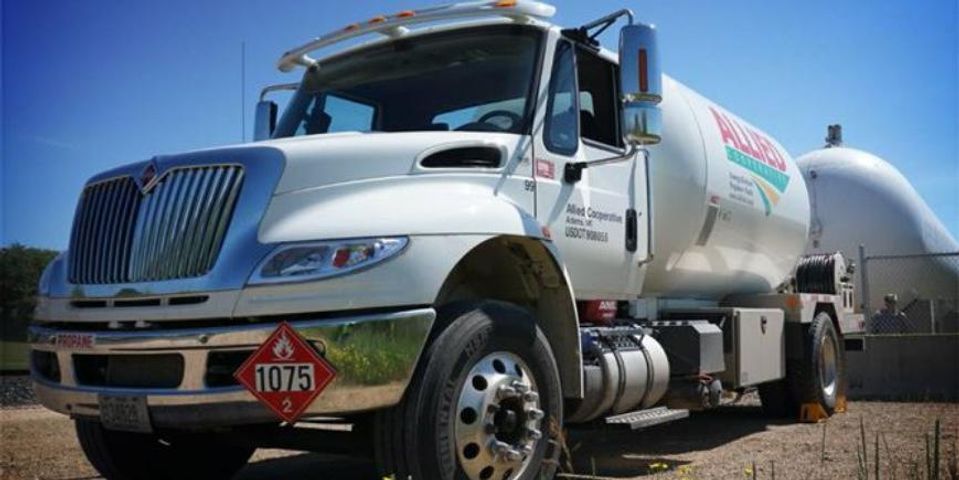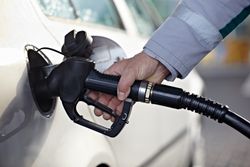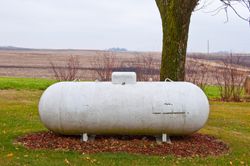Is an All-Electric Energy System Really Reliable?

Politicians and government officials at every level are entranced by a specific goal when it comes to pushing forward on clean energy: shifting to an all-electric energy system. The idea may seem to make sense because fossil fuels and their carbon emissions have become a pariah in the face of climate change, but does it really?
A Comparison of Electricity & Propane
How Does Electricity Compromise Productivity?
If a customer or even an entire community is forced to rely just on electricity for their energy needs—heating and cooling, food storage and preparation, or transportation, for example—then a single point of failure can interrupt all those systems. Customers are unlikely to accept a non-resilient energy system and the idea that all their modern amenities could go down in the blink of an eye because of a single downed powerline.
In contrast, customers who still retain a gas line will still have heating and cooking options, and customers without electric cars can still fill up at the gas station.
How Do Electric & Propane Vehicles Differ?
 Compare the range and fueling times of an electric car and a propane model. With quick fill-up times and a long driving range, propane vehicles stay on the road longer. Fueling propane cars takes minutes, compared to hours to recharge an electric model. Charging electric cars takes up to 5 hours, keeping vehicles off the road for extended periods.
Compare the range and fueling times of an electric car and a propane model. With quick fill-up times and a long driving range, propane vehicles stay on the road longer. Fueling propane cars takes minutes, compared to hours to recharge an electric model. Charging electric cars takes up to 5 hours, keeping vehicles off the road for extended periods.
Propane cars have a substantially longer range than electric models. Class 4-7 propane vehicles can achieve a range of up to 350 miles on a single fueling. Electric work trucks have a range of about 120 miles on a single charge.
What Is the Environmental Impact of Electricity?
Emissions of all types are under increased scrutiny due to the effect they have on air quality and the environment. Burning any fossil fuel contributes to air pollution. While some fuels produce higher concentrations of pollution, propane and liquefied petroleum (LP) gases produce very low levels of air contaminants. Propane-fueled appliances, equipment, and LP gas vehicles burn cleaner and produce environmentally friendly emissions.
Electricity has zero emissions, but the statement that “electricity is 100% efficient or environmentally friendly” is fairly inaccurate due to its generation and production methods. Because electricity is a secondary energy source, which means it’s generated by the use of a primary energy source, it’s not exact or correct to say that electricity is the most environmentally friendly fuel available.
Many people mistakenly believe this and can be misled without understanding all aspects of electrical power generation. In the United States, 49% of all electricity is produced by the burning of coal. If your hybrid-electric car is charged through coal-fired electricity generation, the chances of making a positive impact on the environment are minimal. Therefore, the environmental impact of propane-powered vehicles versus electric vehicles can only be compared solely on the primary energy source of electric power generation.
What Are the Benefits of Propane?
 When weighing the options between relying on propane- or electric-fueled appliances or equipment, first consider the benefits propane offers.
When weighing the options between relying on propane- or electric-fueled appliances or equipment, first consider the benefits propane offers.
- Propane Is More Dependable Than Electric: Propane can be stored safely in a tank on your property, while electricity is subject to power outages. Propane works at all hours, whereas energy sources don’t, which makes it versatile.
- It’s a Clean Fuel: Propane has long been recognized as green energy. By using this exceptional energy, homeowners can help cut emissions and protect the environment. It’s an approved alternative fuel listed in both the Clean Air Act of 1990 and the National Energy Policy Act of 1992. Moreover, because propane produces gas heat, it doesn’t spill, pool, or leave a residue.
- It’s Safe & Measurable: This fuel has a remarkable safety record, due in large part to the stringent codes and regulations developed by the propane industry and the National Fire Protection Association (NFPA). Propane heat also has built-in safety properties. It won’t ignite when combined with air unless the source of ignition reaches 940 F. Propane gas is non-toxic and produces natural emissions, and is not harmful to soil or water. While electricity is measured in kilowatt-hours, propane is measured in familiar gallons.
- It’s Customer-Friendly: With propane, you get 24/7 customer service and support from your delivery team, who all live and work in the same communities that you do.
- It’s Cost-Effective: According to the U.S. Department of Energy, heating a home with propane in recent years has cost far less than heating it with electricity. Even more surprising, propane water heaters can cost 30% less to operate because they can heat water twice as fast.
From powering agricultural machines to ensuring cattle trucks runs smoothly, propane is an essential fuel that boosts productivity for many farmers across the U.S. The team at Allied Cooperative delivers propane to agricultural clients to ensure their operations are as effective as possible. The team delivers fuel quickly and effectively without regular delivery fees, fuel surcharges, or hazmat charges. To schedule regular propane deliveries, call (800) 247-5679. For more information about their propane services, visit them online.
About the Business
Have a question? Ask the experts!
Send your question

